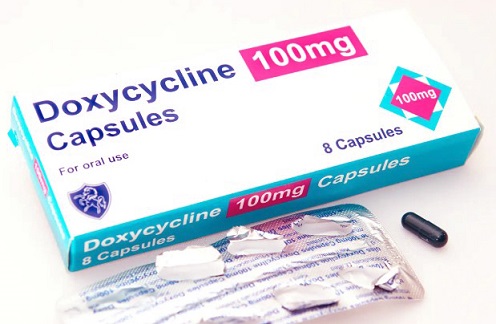Researchers from Singapore Find That Doxycycline Can Be Repurposed to Treat Deadly Brain Tuberculosis
Nikhil Prasad Fact checked by:Thailand Medical News Team Nov 13, 2025 3 months, 1 week, 4 days, 23 hours, 41 minutes ago
Medical News: A Promising New Direction for CNS TB Treatment
A major new study from the Yong Loo Lin School of Medicine at the National University of Singapore (NUS Medicine) has revealed that doxycycline—an inexpensive and widely available antibiotic—may help save the lives of patients suffering from central nervous system tuberculosis (CNS-TB). This severe form of tuberculosis affects the brain and spinal cord and is far more dangerous than ordinary lung TB, especially in children and those with weakened immune systems. The findings come from a preclinical study showing that doxycycline, when added to standard TB treatment, can improve survival and reduce brain damage. In the middle of the second paragraph, this
Medical News report highlights how the researchers identified the main factors that worsen the disease.
 Researchers from Singapore Find That Doxycycline Can Be Repurposed to Treat Deadly Brain Tuberculosis
What the Researchers Found
Researchers from Singapore Find That Doxycycline Can Be Repurposed to Treat Deadly Brain Tuberculosis
What the Researchers Found
The research team analyzed cerebrospinal fluid samples from 72 children with tuberculous meningitis and found very high levels of harmful substances called matrix metalloproteinases (MMPs) and neutrophil extracellular traps (NETs). These substances cause inflammation, destroy brain tissue, and increase the severity of CNS-TB. The researchers, all from NUS Medicine’s Infectious Diseases Translational Research Program, then created a laboratory model that closely mimicked the brain damage seen in human CNS-TB. Using advanced RNA sequencing on both human and research samples, they discovered clear patterns of severe inflammation, immune overactivation, and blood vessel damage inside the infected brain areas.
How Doxycycline Helps Protect the Brain
When the laboratory models were treated with both standard TB drugs and doxycycline, the results were striking. The drug sharply reduced levels of MMPs and NETs, which in turn lowered brain inflammation and prevented further tissue damage. It also helped maintain stronger, healthier blood vessels, allowing TB medications to reach infected areas more effectively. Researchers from NUS Medicine, the University of Southampton in the UK, and the National Neuroscience Institute in Singapore all contributed to the work. They believe this repurposed antibiotic could be quickly adopted worldwide if Phase II trials confirm its benefits, since doxycycline is cheap, safe, and already widely used.
Why This Matters for Global TB Control
TB still infects more than 10.8 million people each year, with Singapore reporting around 1,100 new cases annually. CNS-TB makes up only 1 to 2 percent of global TB cases, but it is one of the deadliest forms and often leaves survivors with long-term neurological problems. The study’s strong early results have already triggered a new Phase II clinical trial now underway in Singapore, Malaysia, and Indonesia. Researchers hope to confirm whether adding doxycycline to standard treatment can improve survival and offer better recovery for patients. Their ultimate goal is to develop safer, more effective treatm
ent pathways using drugs that are already available and affordable.
This growing body of evidence suggests that targeting MMPs and NETs could change how CNS-TB is treated in the future. It also highlights how older drugs can sometimes offer new solutions for complex diseases. If ongoing trials confirm these benefits, doxycycline could become a rapidly scalable global tool to reduce deaths and disabilities from brain TB, offering new hope for patients who currently face very limited treatment options.
The study findings were published in the peer reviewed Journal of Neuroinflammation.
https://jneuroinflammation.biomedcentral.com/articles/10.1186/s12974-025-03548-7
For the latest on drug repurposing, keep on logging to Thailand
Medical News.
Read Also:
https://www.thailandmedical.news/articles/tuberculosis-tb-news
https://www.thailandmedical.news/articles/med-news
